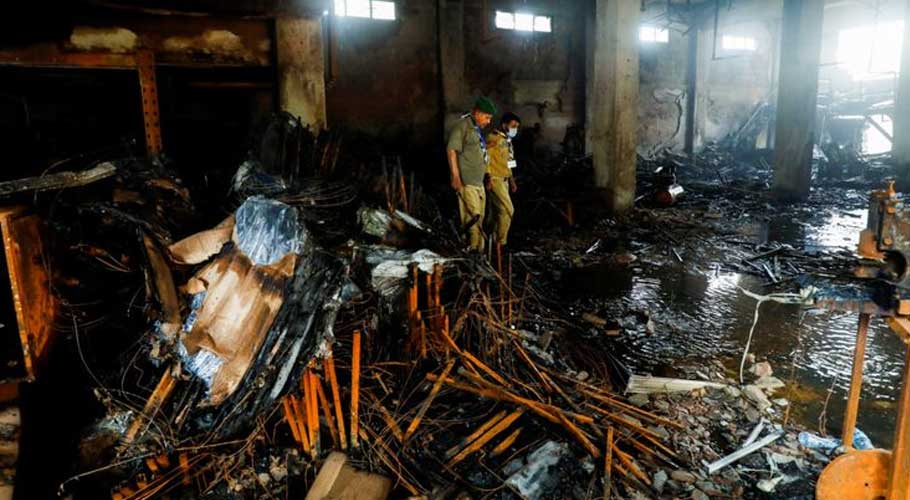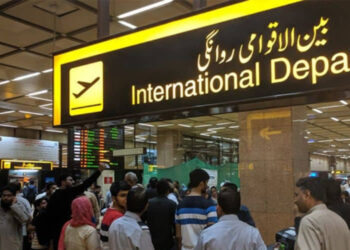At least 16 factory workers were killed in a factory fire on Friday in Pakistan’s largest city and financial hub, Karachi, raising questions about industrial safety in a country not new to such accidents.
Emotional scenes were witnessed outside the mortuary of the Jinnah Postgraduate Medical Centre (JPMC) where the bodies were being brought. JPMC Additional Police Surgeon Dr Summaiya Syed said that 16 bodies had been brought to the hospital so far.
Senior Superintendent of Police (SSP) Korangi Shah Jehan said that police had been informed that there were 25 people still trapped in the building. Workplace safety and health practices in the country are either poor or non-existent, leaving a large number of workers dead.
What happened?
The fire broke out at a multi-story chemical factory in Mehran Town, and most windows of the factory were blocked, police and fire officials said. Private television channels’ footage showed thick grey smoke billowing out from the top floors of the factory.
A survivor told media that the blaze erupted due to a short circuit under the staircase where luggage, briefcases and bags were kept. As the fire engulfed the staircase, his brother and other co-workers who were on the first floor of the building could not descend and were trapped there.
JPMC Additional Police Surgeon Dr Summaiya Syed said that post-mortem examination of the 16 bodies was carried out by doctors which revealed that all of them died due to inhalation of smoke though some of them were “partly burnt but with superficial wounds”.
The cause of death was “cardio-respiratory failure secondary to asphyxia caused by inhalation of smoke and soot particles from fire leading to suffocation and subsequent death,” added Dr Syed.
Past incidents
Karachi is the capital of Sindh province, where many people have set up factories in residential areas in violation of building codes.
In 2015, at least 30 people were killed when a factory collapsed in the city. More than 250 labourers were killed when a fire broke out at a garment factory in Karachi’s Baldia in 2012.
That incident drew global outrage because the factory was supplying products to global chains, including German retailer KiK.
Why do such incidents take place?
One of the most neglected areas of governance in Pakistan is that of inspection and monitoring of the labour force employed in hazardous occupations. The factory inspection mechanisms remain woefully inadequate.
The Global Rights Index 2016 of the International Trade Union Confederation ranked Pakistan among the worst countries in the world for workers, falling in the fourth out of five categories. In 2020, the country slid to category five, which denotes “no guarantee of rights”.
While the Factories Act 1934 and the adoption of the same law by the provincial assemblies empowered the second-tier governments to enforce effective labour inspection protocols, implementation has been faulty.
The relevant government departments must ensure that factories and workshops are adhering to safety regulations, and that those units dealing with chemicals or hazardous material are located in industrial zones far from residential areas.





































